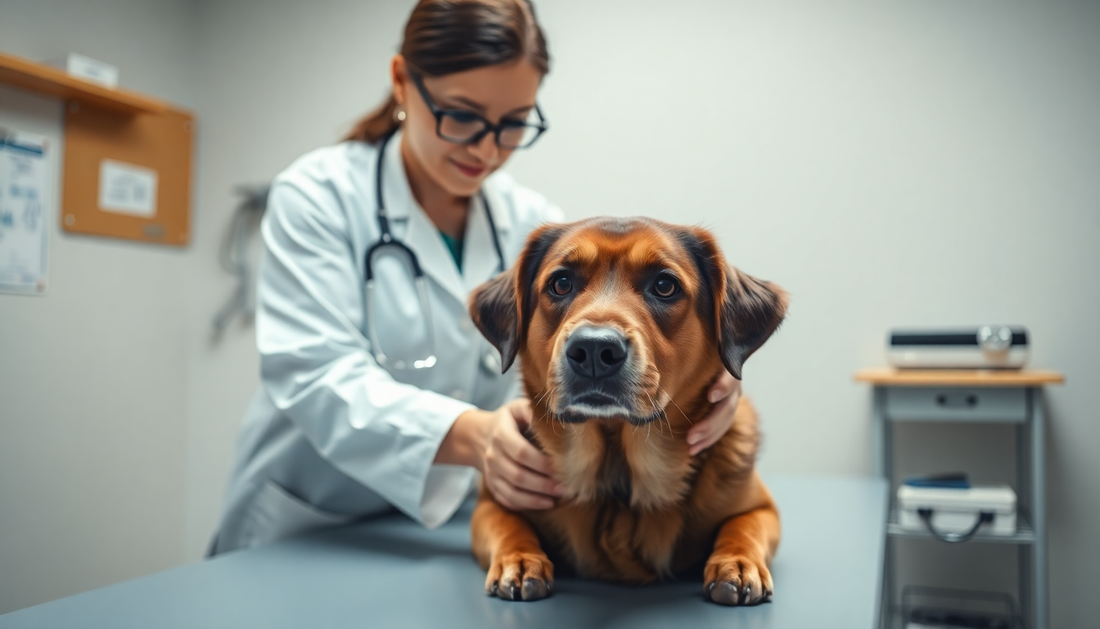
Top 5 Signs Your Dog Needs to Visit the Vet
As a proud pet parent, you want to ensure your furry companion is happy, healthy, and thriving. However, sometimes it can be challenging to determine when your dog needs medical attention. At Furbuddy, we understand the importance of proactive pet care, which is why we've compiled a list of the top five signs that indicate your dog may need to visit the vet.
1. Changes in Appetite or Drinking Habits
One of the most obvious signs that your dog may be unwell is a change in their eating or drinking habits. If your pup is suddenly refusing to eat their favorite treats or meals, or if they're drinking significantly more or less water than usual, it's a good idea to have them examined by a veterinarian. These changes can be indicative of a variety of underlying health issues, such as diabetes, kidney disease, or gastrointestinal problems.
Monitoring Your Dog's Eating and Drinking
Keep a close eye on your dog's food and water intake, and note any significant changes. If your pup is eating or drinking significantly more or less than usual, or if they're refusing their food altogether, it's time to schedule a vet appointment.
2. Unusual Bathroom Habits
Another important indicator of potential health concerns is a change in your dog's bathroom habits. If your pup is having difficulty urinating, experiencing increased frequency or urgency, or producing abnormal-looking urine, it could be a sign of a urinary tract infection, bladder stones, or even kidney disease. Similarly, if your dog is experiencing diarrhea, constipation, or vomiting, it's important to have them checked out by a professional.
Paying Attention to Bathroom Habits
Make a note of your dog's typical bathroom habits, and be on the lookout for any deviations from the norm. If you notice any changes, don't hesitate to contact your veterinarian.
3. Unusual Lumps or Bumps
As your dog ages, it's not uncommon for them to develop small lumps or bumps on their body. While many of these growths are benign, it's important to have them checked by a vet, as some may be indicative of more serious health issues, such as cancer. If you notice any new or unusual lumps or bumps on your dog, be sure to schedule an appointment with your veterinarian as soon as possible.
Examining Your Dog's Skin and Coat
Regularly check your dog's skin and coat for any changes, such as new lumps, bumps, or areas of irritation. If you notice anything out of the ordinary, don't hesitate to have your vet take a closer look.
4. Changes in Behavior or Activity Level
Dogs are creatures of habit, and significant changes in their behavior or activity level can be a sign that something is amiss. If your pup is suddenly less energetic, more lethargic, or seems to be in pain or discomfort, it's important to have them evaluated by a veterinarian. Behavioral changes, such as increased aggression, anxiety, or confusion, can also be indicators of underlying health problems.
Monitoring Your Dog's Behavior and Activity
Pay close attention to your dog's daily routine and habits, and be on the lookout for any significant deviations. If your pup seems to be acting differently, don't hesitate to reach out to your vet.
5. Unusual Coughing, Sneezing, or Breathing Difficulties
Respiratory issues can be a serious concern for dogs, and it's important to address them promptly. If your pup is experiencing persistent coughing, sneezing, or difficulty breathing, it could be a sign of a respiratory infection, allergies, or even a more serious condition, such as heart disease or lung cancer. Don't wait to have your dog examined by a veterinarian if you notice any concerning respiratory symptoms.
Paying Attention to Your Dog's Breathing
Observe your dog's breathing patterns and listen for any unusual sounds, such as wheezing or labored breathing. If you notice anything out of the ordinary, be sure to schedule a vet appointment right away.
Remember, your dog can't tell you when they're not feeling well, so it's up to you as their pet parent to be vigilant and proactive about their health. By keeping an eye out for these five signs and addressing any concerns promptly, you can help ensure your furry friend stays happy and healthy for years to come.


